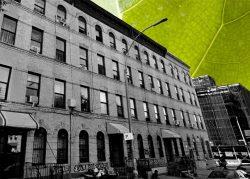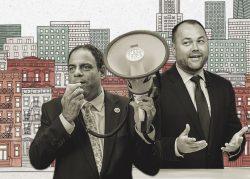A new bill would require large buildings across the city to retrofit their windows with bird-friendly materials by 2030 — a potentially costly mandate for building owners.
The City Council bill is designed to reduce bird collisions with glass windows, which kill an estimated 250,000 birds in New York City annually.
The bill is a sweeping expansion of Local Law 15 of 2020, which mandated the use of bird-safe materials for newly constructed or altered buildings. Existing buildings — of which the city has more than 1 million — were exempted from the original legislation because of the cost it would impose on property owners.
The proposal introduced last week by Tiffany Cabán and Shaun Abreu is designed to close that gap and address the risk posed by buildings constructed prior to Local Law 15.
A spokesperson for the Real Estate Board of New York said, “We are still reviewing this legislation, but we are skeptical such a radical step is warranted or achievable.”
The challenges of implementing bird-friendly measures are already being felt in New York City. At Circa Central Park, a luxury condominium on the Upper West Side, residents have been grappling with bird collisions for years. The building ranks among the three deadliest for birds, according to NYC Audubon, and has become a notorious hazard for migratory birds.
In response, the condo has installed dot stickers on windows to make the glass more visible to birds. The updates to the building’s glass and railings have cost $60,000. Some residents complained that the stickers obstruct their views of Central Park, while others argue that preventing bird deaths is crucial to maintaining the building’s value.
Advocates for birds continue to explore ways to make existing buildings safer, but so far, treatments to the inside of windows have not been effective. Exterior treatments can be much more costly to apply.
In 2019, when the 2020 bill was being debated, REBNY testified that existing buildings should be excluded. The group’s Basha Gerhards told the Council that compliance with the proposal — such as using bird-friendly glass on 90 percent of exterior glazing up to 75 feet from the ground, and retrofitting balcony railings — could lead to significant delays in construction and increased expense for building owners.
The extra cost can range from 3 percent more for tinted glass to 12 percent more for adhesive film and 50 percent more for specialty-treated glass, the industry group testified. At the time, only four manufacturers made bird-friendly glass.
REBNY did say in 2019 that it supported the goal of achieving a more bird-friendly building environment and reducing bird collisions below the tree canopy. But it recommended exemptions be considered for landmarks, rent-stabilized buildings and new affordable housing.
Read more



